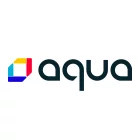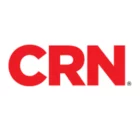
Google Releases Supplemental Patch for Dirty COW Vulnerability
While Google didn’t issue an official fix for the Dirty Cow vulnerability (CVE-2016-5195), it did release “supplemental” firmware updates for its Nexus and Pixel handsets. According to Michael Cherny, head of security research at Aqua Security, Samsung also released the fix for Dirty Cow this month (SMR-NOV-2016), while other handset makers have not.
11 Early-Stage Israeli B2B Software Companies To Watch
We used CB Insights Mosaic scoring tool, which uses public data and predictive algorithms to measure the overall health and growth potential of private companies, to identify 11 early-stage companies in the seed and Series A stage with traction.
Containers Can’t Fence Dirty COW Vulnerability
Aqua Security Software researchers explain that the available POCs focused on privilege escalation inside the container, but that it is possible to run code inside a container, from a non-root user, to write data to a “protected” file on the read-only volume the container was mounted on. Aqua’s Sagie Dulce explains that even users with root privileges shouldn’t have write access to a mapped read-only volume in a container, let alone a non-root user. However, Dirty COW makes it possible for data on the host to be manipulated from within the container.

Aqua Security Announces Support for Windows 2016 Containers
Integrates with Microsoft Visual Studio Team Services to Automate Container Image Vulnerability Scanning Tel Aviv, Israel – 27 October 2016 – Aqua Security, the leading platform provider for securing virtual container applications, today announced support for Windows Server 2016 containers as well as integration with Microsoft Visual Studio Team Services (VSTS). These latest additions to …

15 Cybersecurity Companies That Hauled In Major Funding In Q3
In the realm of emerging enterprise technology, cybersecurity is the current reigning champion–at least in terms of venture capital activity. Out of the 100 venture deals for enterprise tech companies that we tracked during the third quarter, 43 of them were for security companies.

10 New Product Categories Created Exclusively For The Container Era
Containers are emerging as the most disruptive technology of this decade. From platform vendors to early-stage startups to large enterprises, every company is getting impacted by containerization. Both the supply and demand side of the industry is gearing up to deal with this phenomenon.

Aqua Security Raises $9 Million
Seed investors Shlomo Kramer and TLV Partners also participated in this round, bring the company’s total investment to $13.5 million. Mr. Kramer will be joining the company’s board of directors
[…]Mr. Kramer said he wanted to invest in the company after competing with Mr. Davidoff at previous companies. He views virtual container applications as “a huge opportunity” in the security market.

Aqua Security Raises $9M for Container Security
Aqua Security announced on Sept. 27 that it has raised $9 million in a Series A round of funding, which will be used to grow the company’s go-to-market efforts as it ramps up to capitalize on the emerging opportunity for container security.
Microsoft Ventures led the Series A round of funding, which also included the participation of TLV Partners and cyber-security luminary Shlomo Kramer. Total funding to date for the company, which was founded last year, now stands at $13.5 million.
